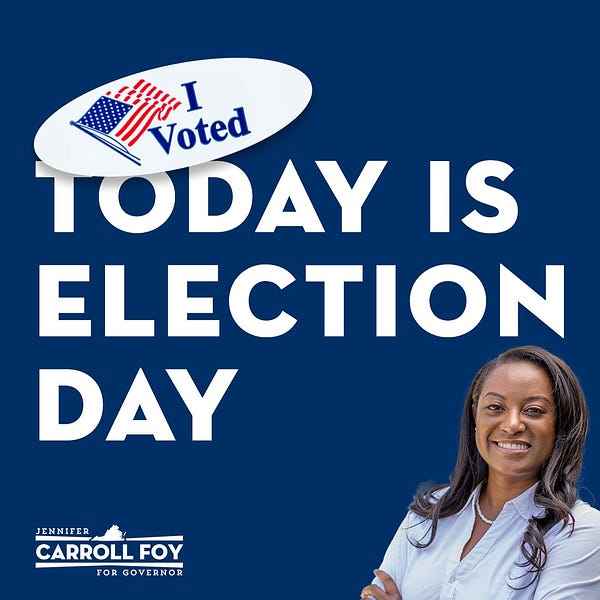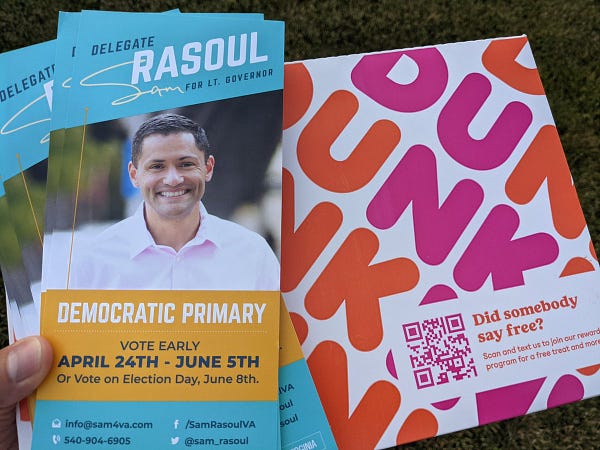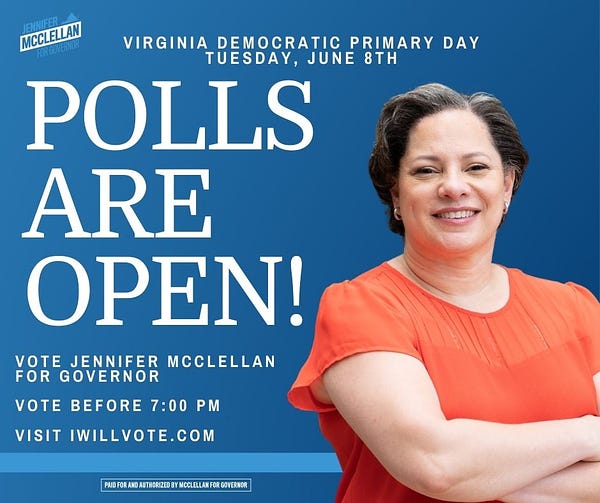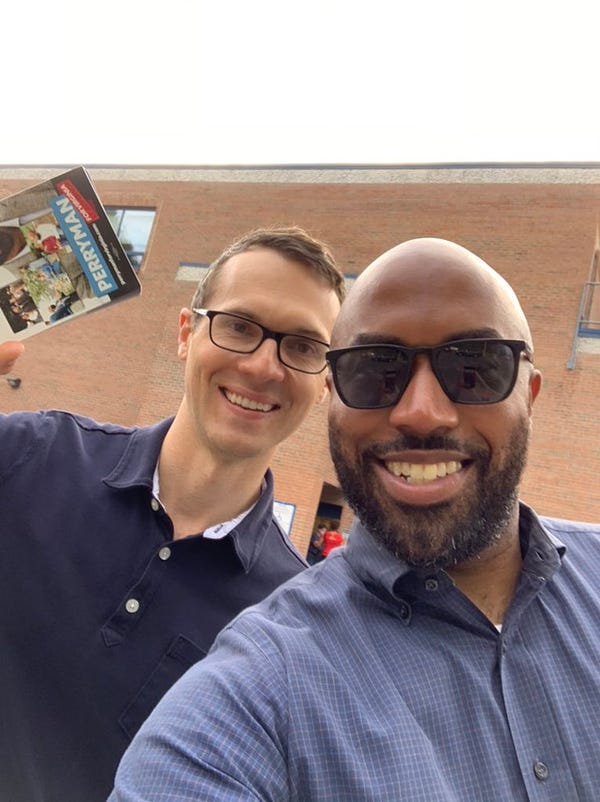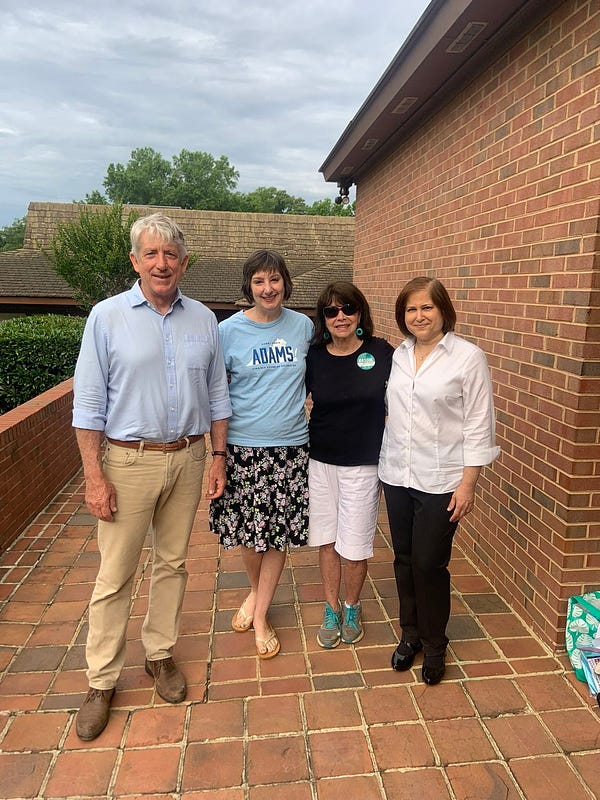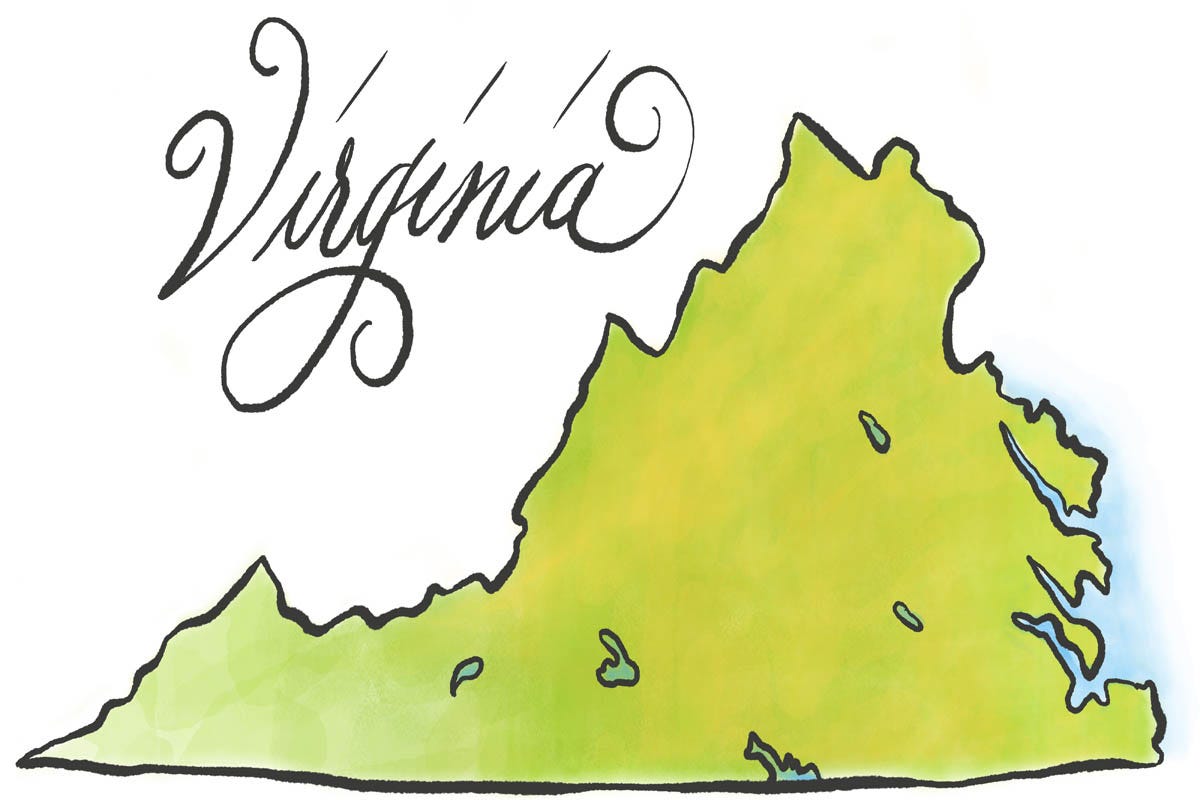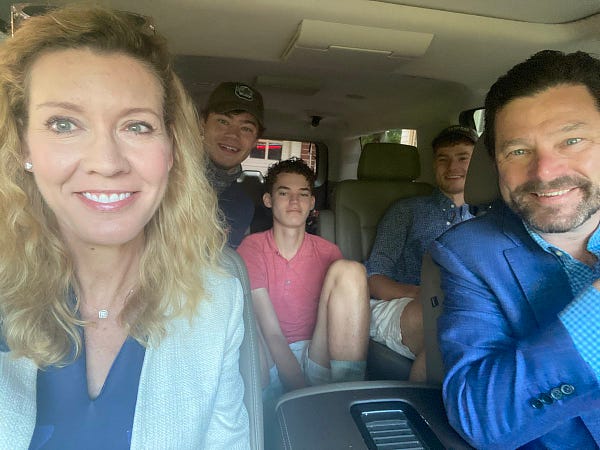This is a daily newsletter covering Virginia politics with a special focus on the gubernatorial race. Please consider supporting independent journalism and Virginia Scope by becoming a paid subscriber today!
Also thank you so much to all of the incredible people that have already subscribed or donated! It means the world and keeps this project moving forward.
Two House primary races shine a light on Virginia’s Democratic donor war
It is once again election day in Virginia. Democrats are nominating their gubernatorial, lieutenant governor, and attorney general candidates today along with a slate of primary races in House districts across the commonwealth.
Part of the intrigue for this primary day is the war between Democratic donors coming to fruition — some of these House races bring the behind-the-scenes power struggle to the forefront as the not-anti-Dominion Energy candidates face off against Clean Virginia and the people that fund it in Michael Bills and Sonjia Smith, a husband and wife duo that donate to candidates both together and separately.
Smith and Bills typically only support candidates that pledge not to take money from Dominion Energy or Appalachian Power.
Specifically, there are two House races where Bills and Smith have practically funded the primary challenger’s entire campaign.
HD-79, currently represented by Steve Heretick and HD-02, currently represented by Candi King are the two races that have brought caucus leaders the most stress in recent weeks according to sources with knowledge of the situation.
Del. Heretick is being challenged by Nadarius Clark, a community activist in Portsmouth. Heretick, first elected to the House in 2015, is considered by many to be one of the more conservative Democrats in the General Assembly. He also has received $120,000 from Dominion Energy during this election cycle, making him a prime target for Clean Virginia.
In total, Heretick raised $463,981 for this race according to the most recent fundraising report.
Clark has outraised Heretick by bringing in $538,353 at the latest filing deadline. $530,899 of his fundraising haul came from Smith and Bills, however, as they make a strong attempt at grabbing this seat and more power within the Democratic caucus.
In HD-02, Del. King is being challenged by Pamela Montgomery. King defeated Montgomery in a nomination battle at the end of last year for a special election to replace Carroll Foy in the House. Now they are competing again for the same seat less than 6 months later.
Montgomery has raised $638,976 for this race with $545,200 of that coming from Smith and Bills. King has only raised $157,860 as of the most recent filing deadline with the majority of her money coming from the Virginia Legislative Black Caucus.
King has been outspoken against Bills and Smith in recent weeks. She touched on that again Monday night in a series of tweets. “Many people have said to me…you are brave for speaking out against such ‘powerful’ people,” King tweeted. “I reminded someone, most of the time people only have the power you give them. As a Black woman, I know what it’s like to be silenced, to feel invisible.”
The Democratic House caucus recently pushed back against the primary challengers that are funded by Smith and Bills with a mailer noting that Clean Virginia donated to Amanda Chase during the previous election cycle. Around the same time that the mailer was sent, Dominion Energy donated $25,000 to the General Assembly Democratic Caucus’s fundraising arm, Commonwealth Victory Fund.
The Richmond Times-Dispatch reported in May that “the attack surprised Bills, and Clean Virginia issued a statement noting that since 2018 he had given more than $1.8 million to members of the House Democratic Caucus and Democratic House candidates, and ‘actively’ gives money to 42 of the 55 House Democrats.”
Clean Virginia has also attacked candidates in recent weeks. After Del. Hala Ayala broke her pledge and accepted $100,000 from Dominion for her lieutenant governor campaign, Clean Virginia launched a six-figure attack campaign against her.
In a primary election cycle when low turnout is expected from most campaigns, the significant cash advantage from these primary challengers funded by Bills and Smith could help propel their movement to break up Dominion’s power in the Democratic Party.
Or they could have spent over $1 million just to lose both challenges. We should know tonight.
Also on the ballot for Democratic voters across the commonwealth are statewide nominees.
On the gubernatorial ballot, voters are deciding between former Governor Terry McAuliffe, state Senator Jennifer McClellan, former Del. Jennifer Carroll Foy, Del. Lee Carter, and Lieutenant Governor Justin Fairfax.
The field for lieutenant governor is slightly larger with Del. Hala Ayala, Del. Sam Rasoul, Del. Mark Levine, Norfolk Councilwoman Andria McClellan, former Fairfax NAACP president Sean Perryman, and Xavier Warren vying for the nomination.
The attorney general race is much simpler with just Del. Jay Jones challenging the two-term incumbent Mark Herring.
The polls are open until 7 p.m. today. Go to your regular voting location to participate.
Virginia's Democratic primary is historically diverse. Its frontrunners aren't. - Politico
by Maya King
Money and name recognition have shaped the contours of Virginia’s off-year Democratic primary. They have also edged out the women and people of color vying for some of the state’s top offices.
Heading into Tuesday's primary, Democrats are poised to nominate two well-known white men: former Gov. Terry McAuliffe and state Attorney General Mark Herring. Only the lieutenant governor spot is likely to see Democrats pick a nominee of color.
Virginia’s Democratic Primary Races: What to Watch For - New York Times
by Jonathan Martin
Virginia Democrats go to the polls on Tuesday to determine their candidates in races ranging from governor to the State House, but the onset of summer isn’t the only reason this year’s primary season has been sleepy.
Taking place just months after a presidential election, nominating contests in Virginia often reflect the mood of the electorate. And if this year’s primary never seemed to get off the ground, it was in part because many voters are burned out on politics after four convulsive years of the Trump administration, a bitter 2020 campaign and a coronavirus pandemic that is only now receding.
On Eve of Primary, Rivals Seek to Chip at McAuliffe's Advantage - VPM News
by Ben Paviour
Former Gov. Terry McAuliffe brings assets that are the envy of the four other candidates in Tuesday’s Democratic primary: a long roster of endorsements, a deep reservoir of cash, and promising poll numbers to back up his re-election bid.
But McAuliffe’s rivals are using the final stretch of campaigning to stress what they say the former governor lacks: A new face for a new era of Virginia politics. Two Black women on the ballot – former Del. Jennifer Carroll Foy and state Sen. Jennifer McClellan (D-Richmond) -- say they’re more likely to energize the base and bridge coalitions that make up the party against the GOP’s nominee, businessman Glenn Youngkin. No Black woman has been elected governor in the U.S.
Home(town) stretch: Jennifer Carroll Foy makes stop in Petersburg prior to Primary Day - Progress-Index
by Bill Atkinson
As Jennifer Carroll Foy walked out of Tramonto Ristorante in Old Towne early Monday afternoon, two women seated in a booth called out to her.
"Aren't you running for governor?" one of them asked. When the former member of the Virginia House of Delegates said she was, the woman smiled and said, "I just saw you on TV today."
In divided vote, Va. Redistricting Commission chooses to hire partisan lawyers - Virginia Mercury
by Graham Moomaw
The Virginia Redistricting Commission rejected an attempt Monday to at least try to hire nonpartisan lawyers, choosing instead to seek two sets of partisan attorneys to advise the new body as it redraws the state’s political districts later this year.
Opinion was split as the commission made the first major decision since its creation last winter, with Democratic-appointed citizen members overruled by most of the elected Democrats and all Republicans on the 16-person commission.



